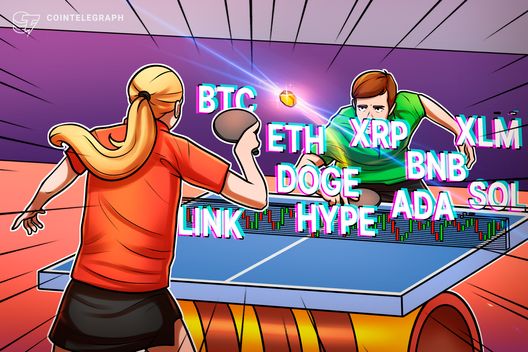Author: Daniel Barabander, Investment Partner at Variant Fund; Translated by: AIMan@Jinse Finance
If the future of the internet is a market where agents (also called intelligent agents) pay each other for services, then cryptocurrency will find a mainstream product-market fit that it could only dream of before. While I believe agents will pay each other for services, I'm not sure if this market model will succeed.
By "bazaar" I mean a decentralized, permissionless ecosystem composed of independently developed, loosely coordinated agent agencies - the internet more like an open market, rather than a centralized planned system. Linux is a typical example of the "bazaar" model. This is in contrast to the "cathedral" model: services managed by a few large participants, strictly controlled, and vertically integrated. Windows is a typical example. (The term originates from Eric Raymond's classic article "The Cathedral and the Bazaar", which describes open-source development as a chaotic but adaptive system - an evolutionary system that can surpass carefully planned structures over time.)
Let's analyze each condition - agent payments and the rise of the bazaar - and then explain why if both are achieved, crypto becomes not just useful, but necessary.
Two Conditions
Condition 1: Payments will be integrated into most agent transactions.
The internet we know subsidizes costs by selling advertisements based on application page views. But in a world of agents, people will no longer need to visit websites to obtain online services. Applications will also increasingly be based on agents, rather than user interfaces.
Agents lack eyeballs to attract advertisements, so applications have every reason to adjust their monetization strategies and directly charge service fees to agents. This is basically the current state of APIs - services like LinkedIn are free, but if you want to use the API (i.e., "robot" users), you must pay.
Given this, payment functionality is likely to be integrated into most agent transactions. Agents will provide services and charge fees to users/agents in micro-transactions. For example, you can have your personal agent search for suitable job candidates on LinkedIn. The personal agent will communicate with LinkedIn's recruiting agent, which will collect service fees in advance.
Condition 2: Users will rely on agents built by independent developers with hyper-specialized prompts/data/tools, forming an untrusted bazaar of agents that call each other's services.
This makes sense in principle, but I'm not certain how it will play out in practice.
Here are the reasons for bazaar formation:
Currently, humans perform most service work, and we use the internet to solve some discrete tasks. But with the rise of intelligent agents, the range of tasks we delegate to technology will dramatically expand. Users will need intelligent agents with specialized prompts, tool calls, and data to perform their specific tasks. These tasks are so diverse that a small group of trusted companies cannot cover them, just as the iPhone relies on a vast third-party developer ecosystem to fully realize its potential.
Independent agent developers will fill this role, creating specialized agents through extremely low development costs (such as ambient coding) and open-source models. This will form a long-tail market of agents providing highly precise data/prompts/tools, forming a "bazaar". Users will request agents to perform tasks, these agents will call other agents with specialized capabilities to complete tasks, which will in turn call other agents, forming a long Dai chain.
In this bazaar scenario, most service-providing agents are relatively untrustworthy because they are provided by unknown developers and serve niche purposes. Agents in the long tail find it difficult to establish sufficient reputation to gain trust. This trust issue is particularly severe in the Dai chain paradigm, as user trust gradually weakens along each link of the Dai chain as services are delegated to agents that users trust (or can even reasonably identify).
[Translation continues in the same manner, maintaining the original structure and translating all text except for content within <> tags]Encryption: Service providers can only receive payment when they can cryptographically prove to the requesting agent that they have indeed completed the promised task. For example, agents can provide TEE certification or zkTLS proof (provided the cost is low enough/speed is fast enough), proving they have scraped data from a website, run a specific model, or contributed a certain amount of computing power. These are deterministic tasks that are relatively easy to verify cryptographically.
Cryptoeconomics: Service providers will stake assets that will be confiscated if they are found cheating, creating an economic incentive for them to act honestly even in the absence of trust. For example, an agent might research a topic and provide a report—but how do we know if it was "done well"? This is a more difficult form of verification because it is not deterministic, and achieving the right fuzzy verifiability has long been the holy grail of crypto projects. However, I hope we can ultimately achieve fuzzy verifiability by using AI as a neutral arbitrator. We can imagine a dispute resolution/confiscation process run by an AI committee in a minimally trusted environment (such as a Trusted Execution Environment (TEE)). When an agent challenges another agent's work, each AI in the committee can obtain the input, output, and details about that agent (past dispute/network work history, etc.). They can then decide whether to confiscate its assets. This would create a form of optimistic verifiability where economic incentives would first prevent parties from cheating.
In practice, cryptocurrencies enable us to atomize payments through service proof—no agent receives payment unless the work has been verifiably completed. In a permissionless agent economy, this is the only scalable method to ensure edge reliability.
In summary, if the vast majority of agent transactions do not involve payment (i.e., do not meet condition 1) or are conducted with trusted brands (i.e., do not meet condition 2), we may not need to set up cryptographic channels for agents. This is because when money is not involved, users can interact with untrusted third parties with confidence; and when money is involved, agents can simply whitelist a limited number of trusted brands/institutions, and the trust chain can ensure that the promises of services provided by each agent are fulfilled.
But if both conditions are met, cryptocurrencies will become an indispensable infrastructure, becoming the only scalable way to verify work and execute payments in a low-trust, permissionless environment. Cryptocurrencies provide tools for the bazaar that are superior to the cathedral.







